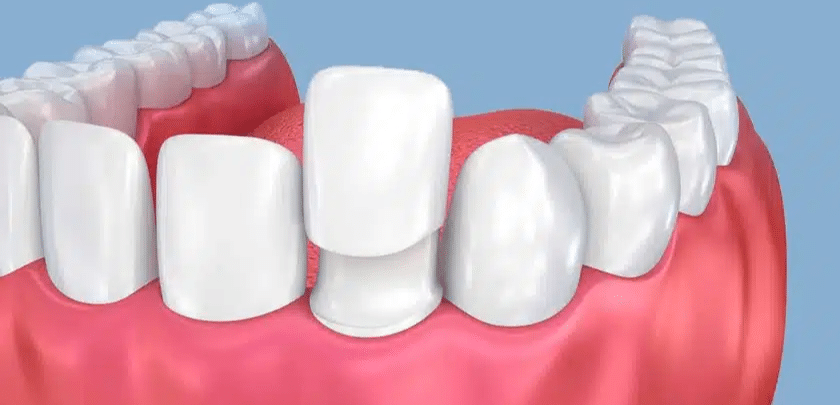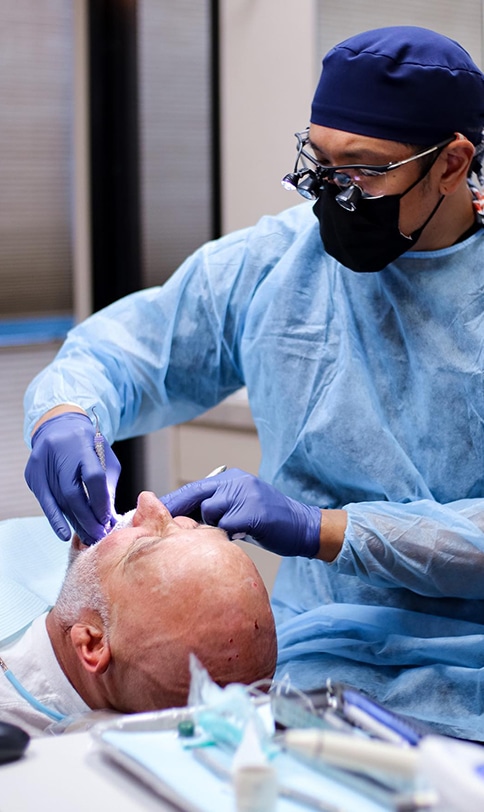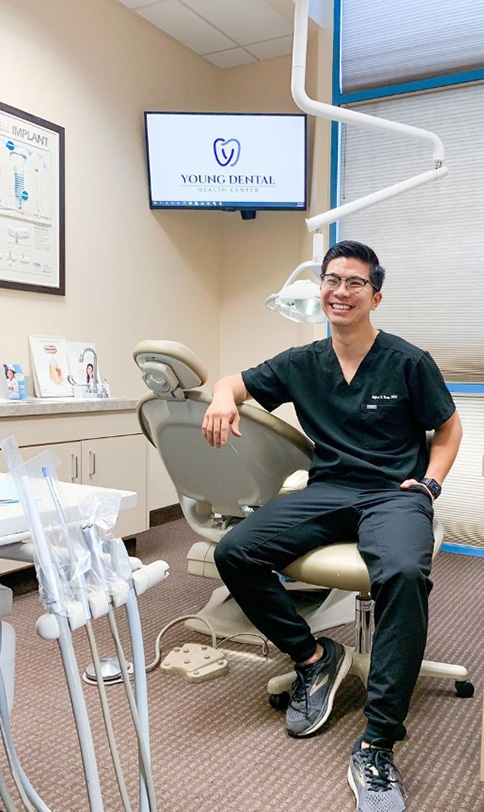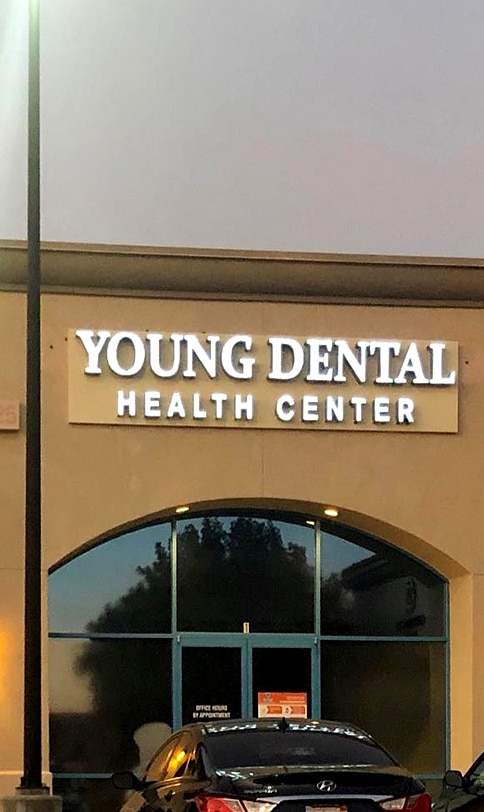E-mail Us
Know What You Should do If Your Veneer Falls off!

Veneers – those thin shells of porcelain or composite resin – are a popular cosmetic dentistry solution, giving you a dazzling, picture-perfect smile. But even the sturdiest veneer isn’t invincible. Sometimes, due to wear and tear, trauma, or improper care, a veneer can decide to take a vacation, leaving you with a gap-toothed grin and a wave of panic. But fear not, fellow guardian of your pearly whites! This guide will equip you with the knowledge and steps to navigate this dental detour.
The Fallen Comrade: Understanding Why Veneers Detach
Several factors can contribute to a veneer’s untimely departure:
- Chipping or Cracking: Over time, veneers can develop small cracks or chips, especially if you grind your teeth or chew on hard objects. These weaknesses can make them more susceptible to complete detachment.
- Bonding Failure: The adhesive that secures the veneer to the tooth can weaken over time due to wear and tear or improper application during placement.
- Underlying Tooth Decay: If decay develops beneath the veneer, it can compromise the bond and lead to detachment.
- Trauma: A sudden blow to the mouth, like a fall or sports injury, can dislodge a veneer.
The Discovery: What to Do When Your Veneer Falls Off
So, you’ve bitten into an apple and felt a disconcerting shift. Your tongue explores the gap, and there it is – your veneer, no longer gracing your smile. Here’s what you should do:
- Stay Calm and Assess the Damage: Panicking won’t fix the situation. Take a deep breath and examine the veneer. Is it broken or intact?
- Locate the Veneer: If possible, try to find the fallen veneer. The dentist might be able to reattach it in some cases.
- Protect the Exposed Tooth: The exposed tooth can be sensitive. Rinse the veneer and the exposed tooth with warm water. If you have dental wax, you can mold a small piece over the exposed tooth to create a temporary barrier and minimize discomfort.
The Rescue Mission: Contacting Your Dentist
Time is of the essence! Here’s why contacting your dentist promptly is crucial:
- Reattachment Potential: The sooner you see your dentist, the higher the chance of successfully reattaching the veneer, especially if it’s unbroken.
- Minimizing Damage: The exposed tooth is vulnerable to infection and further damage. Your dentist can assess the situation and take steps to protect the tooth.
- Long-Term Solutions: Depending on the condition of the veneer and the underlying tooth structure, your dentist will recommend the best course of action, whether it’s reattachment, repair, or replacement.
The Treatment Options: What Your Dentist Can Do
If your veneer falls off, your dentist might choose one of these options:
- Reattachment: If the veneer is intact and the underlying tooth structure is healthy, your dentist might be able to re-bond the veneer using a stronger adhesive.
- Repair: For minor chips or cracks on the veneer, your dentist might be able to repair it. They use composite resin, which is a tooth-colored material.
- Replacement: If the veneer is broken or significantly damaged, or if the underlying tooth structure is compromised, a new veneer will need to be fabricated and placed.
Preventing a Veneer Falls Off: Tips for Long-Lasting Beauty
Just like your favorite pair of shoes, veneers require proper care to maintain their longevity. Here are some tips to keep your veneers looking and functioning their best:
- Practice Good Oral Hygiene: Brushing twice daily and flossing regularly removes plaque and bacteria buildup, which can contribute to bonding failure.
- Mind Your Diet: Avoid excessively hard, chewy, or sticky foods that can put undue stress on the veneer and potentially cause cracks or breakage.
- Don’t Use Your Teeth as Tools: Veneers aren’t designed for opening bottles or cracking nuts. Use proper tools for such tasks.
- Wear a Nightguard: If you grind your teeth at night, wearing a nightguard can protect your veneers from damage caused by clenching and grinding.
- Schedule Regular Dental Checkups: Regular dental checkups allow your dentist to identify any potential problems with your veneers early on. Address them before they become major issues.
The Takeaway: Don’t sweat it! A lost veneer can be recovered. Be proactive, schedule an appointment with your dentist ASAP. Maintain a consistent oral hygiene routine to ensure your veneers stay picture-perfect for years to come.









